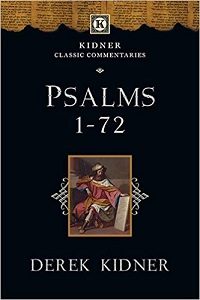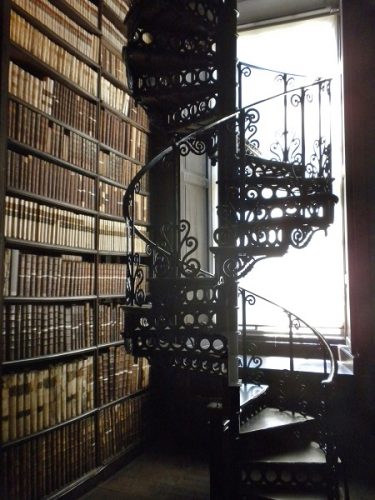 There are Bible commentaries published in the second half of the twentieth century that will continue to be read for years to come such as John Murray on Romans, Philip E. Hughes on Hebrews, and anything by F. F. Bruce. Another commentator of the era is Derek Kidner (1913–2008) who was the warden of Tyndale House, Cambridge, 1964-1978. His books originally published in the Tyndale Old Testament Commentary series have been reissued in the Kidner Classic Commentary series by IVP Academic. The books included in the series are Genesis, Psalms, Proverbs, and Jeremiah. The commentary used for this notice is the two-volume set on Psalms. The first volume covers psalms 1-72 and the second one addresses chapters 73-150. The pages of the volumes are numbered sequentially with a total of just over five-hundred. The introduction provides material about the nature of Hebrew poetry, the structure of the book of Psalms, and an extended section explaining terminology in the passages such as selah, Asaph, and miktam among others. There are some biblical language terms transliterated from the original, but the commentary is very English reader friendly. The covers are attractive with smooth finishes that are pleasing to the touch. A particularly nice aspect is the text itself is more user friendly due to both a larger font and page size than in the earlier editions. Kidner’s comments are brief but they often provide nuggets of insight that open up the meaning of a complex passage, and he had a keen sense regarding the redemptive-historical aspects of Psalms. I think Kidner’s work provides a modern complement to the commentaries provided historically by Augustine in the fourth century, Thomas Aquinas in the Middle Ages, and then the great works by both Martin Luther and John Calvin. No commentary answers every reader’s questions, but Kidner raises and answers other questions in the place of those that go unanswered. If you do not have a commentary on Psalms, Derek Kidner’s work may prove helpful for your studies.
There are Bible commentaries published in the second half of the twentieth century that will continue to be read for years to come such as John Murray on Romans, Philip E. Hughes on Hebrews, and anything by F. F. Bruce. Another commentator of the era is Derek Kidner (1913–2008) who was the warden of Tyndale House, Cambridge, 1964-1978. His books originally published in the Tyndale Old Testament Commentary series have been reissued in the Kidner Classic Commentary series by IVP Academic. The books included in the series are Genesis, Psalms, Proverbs, and Jeremiah. The commentary used for this notice is the two-volume set on Psalms. The first volume covers psalms 1-72 and the second one addresses chapters 73-150. The pages of the volumes are numbered sequentially with a total of just over five-hundred. The introduction provides material about the nature of Hebrew poetry, the structure of the book of Psalms, and an extended section explaining terminology in the passages such as selah, Asaph, and miktam among others. There are some biblical language terms transliterated from the original, but the commentary is very English reader friendly. The covers are attractive with smooth finishes that are pleasing to the touch. A particularly nice aspect is the text itself is more user friendly due to both a larger font and page size than in the earlier editions. Kidner’s comments are brief but they often provide nuggets of insight that open up the meaning of a complex passage, and he had a keen sense regarding the redemptive-historical aspects of Psalms. I think Kidner’s work provides a modern complement to the commentaries provided historically by Augustine in the fourth century, Thomas Aquinas in the Middle Ages, and then the great works by both Martin Luther and John Calvin. No commentary answers every reader’s questions, but Kidner raises and answers other questions in the place of those that go unanswered. If you do not have a commentary on Psalms, Derek Kidner’s work may prove helpful for your studies.
BARRY WAUGH





